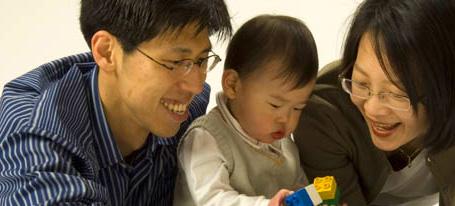Universal Newborn Hearing Screening Programme

The national newborn hearing screening programme is now in place in all District Health Boards, and it is expected that around ten babies a month born with a significant hearing loss will be identified. The Programme is jointly led by the Ministries of Health and Education, to ensure those babies detected with a hearing loss receive support from the newborn period through to school entry.
Benefits of a universally offered Newborn Hearing Screening Programme
Each year, it is estimated that between 135 and 170 babies are born in New Zealand with mild to profound permanent congenital hearing loss. This represents a birth incidence of approximately three babies with a hearing loss per 1000 births, which is within the range of international estimates.
The first six months of a baby’s life is a critical period for learning communication. Lack of exposure to language during this time can affect a child’s development, communication skills, educational and career achievements. The early detection of hearing loss, and the application of early interventions, has been demonstrated to significantly improve long-term language skills and cognitive ability.
In this section
-
The documents in this section have been developed by the NSU for health professionals providing services in or associated with the Universal Newborn Hearing and Early Intervention Programme (UNHSEIP).
-
The NSU is responsible for providing leadership and strategic direction for screening in New Zealand.
-
The NSU offers on-line education for health providers who provide services within the antenatal and newborn screening programmes, including UNHSEIP.
-
Find answers to some frequently asked questions that families might ask of screeners regarding newborn hearing screening.
-
-
The National Screening Unit hosted the Universal Newborn Hearing Screening and Early Intervention Programme (UNHSEIP) online hui on 11th May 2021.
-
The New Zealand Deafness Notification Database (DND) contains information on children and young people under the age of 19 years who have been diagnosed with a permanent hearing loss in one or both ears.

